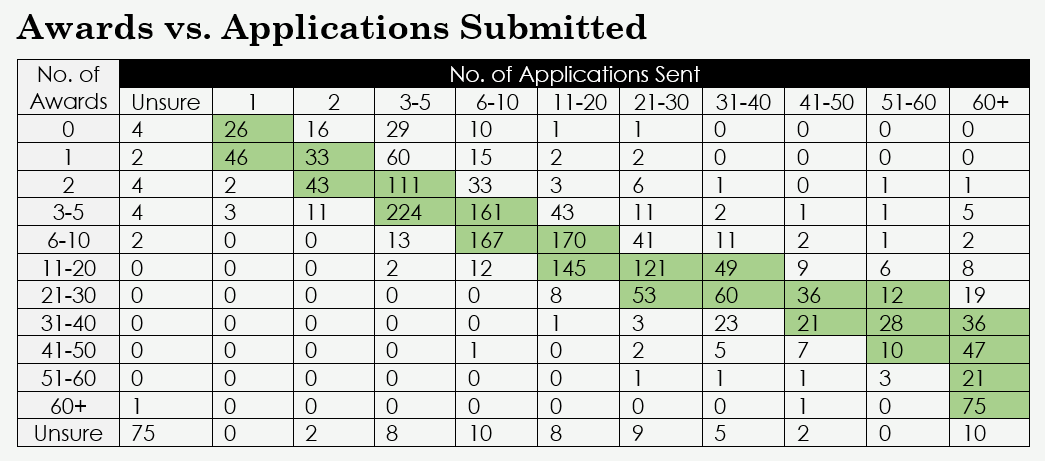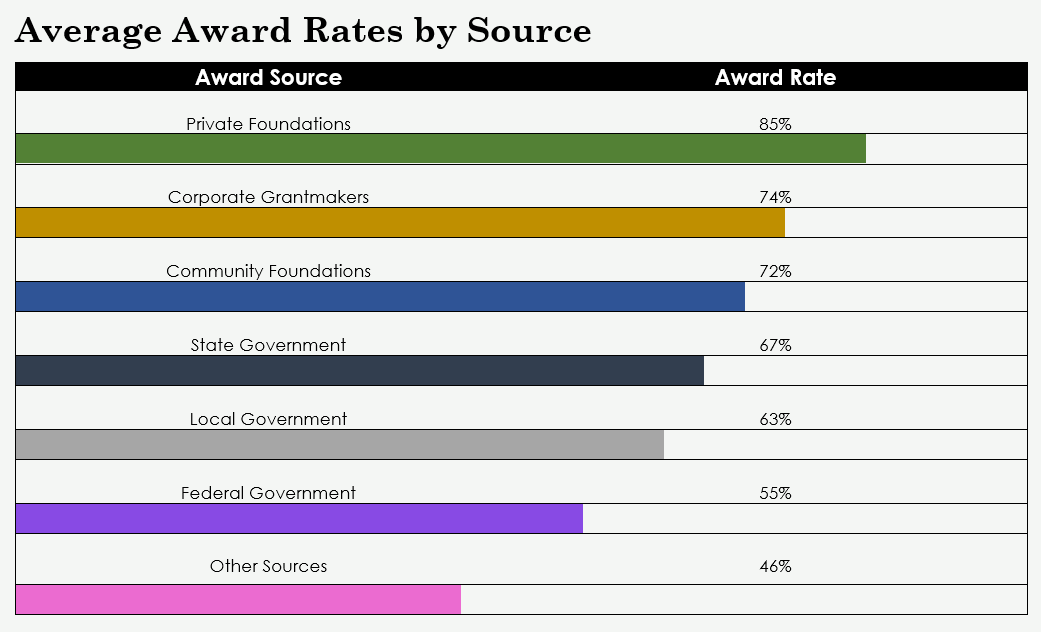How much does a grant cost?
Jozana charges on a value basis, not strictly by the hour. We consider:
- Scope. Our fees reflect the work you contract us to do. The larger the scope (development, writing, appendices, editing, etc.), the higher the fee.
- Narrative. Writing takes time. Strong writing takes more time. For this reason, we take character or word limits into account when considering what to charge.
- Miscellaneous elements. Grants often involve more than just a written portion. They require forms, a budget, attachments, and a cover page. Sometimes they call for letters of interest or preapplications. Fees reflect these necessities.
- Time. Most of our costs come directly from the time spent on a project. Activities included in grant writing include research, checking eligibility, meetings, graphic design, writing, editing, and general project management. Note that time varies widely based on a grant’s requirements. It takes an average of 15-20 hours to complete a foundation grant, whereas it may take 100 hours (sometimes many more!) to complete a federal grant.
- Expertise. We charge more for areas in which we have more experience. These areas include manufacturing, biomass, and forest products.
- Baloney. Yup—if a client is difficult to work with, they can expect to pay more.
Why do you charge what you do?
We consider our charges carefully and constantly evaluate whether our fees fairly reflect the value we provide. We aim to position our clients in the best light possible so they have the highest chance of winning an award.
To this end, we go beyond simply filling out an application form. We contact the funders (or facilitate our client’s contact with them), add visual appeal wherever possible, and work with qualified subcontractors who bring nuance to their writing. In short, we’re committed to unparalleled quality, something we can’t provide you with if we were to lower our rates.
Can we pay by commission?
Jozana LLC does not work on a commission basis, nor we do not accept any percentage of an award. Although commissions were once commonplace, professional organizations and funders now consider them
unethical.
The Grant Professionals Associates states that
“Members shall not accept or pay a finder’s fee, commission, or percentage compensation based on grants and shall take care to discourage organizations from making such
payments.”
We can control the quality and persuasiveness of our submissions, so it is for this product we’re compensated.
There are reasons on your end that we don’t accept commissions, too. Funders don’t like them. They consider grant writing an operational expense and not part of a project’s cost, so they rarely allow it in the grant budget. Some even explicitly prohibit it. What’s more, it would reflect poorly on them if any portion of their awards were going to grant writers—they’re held responsible for how the money gets used. It would be irresponsible of them to consistently allow a chunk of their funding to go to grant writers.
Commission-based fees will also cost you more. Commissions would need to cover the costs of all the awards we didn’t win. Plus, delays in payment increase our risk, and risk has a cost. By requiring a typical consultant fee structure, we ultimately save your organization money.
Can you ensure we will win an award?
Grants are inherently competitive, and we cannot control whom a grant committee will choose to award. Below are statistics from a 2020 State of Grant Writing industry review:

The above graph shows that the chances of winning an award drastically increase when an organization submits at least three applications. Applying for at least six grant proposals virtually ensures that an organization will receive at least one award.
How do you increase our chance of success?
We work hard to ensure your organization is well-positioned to receive a grant. To increase your chances, we:
- Don’t seek funding first. Organizations sometimes apply for every grant that relates to their objectives. This “toss it at the side of the barn and see what sticks” approach is costly, time-intensive, and frustrating for funders and applicants. Instead, we seek funding for defined programs, projects, and research.
- Research success rates. We seek grants with an award rate of 20 percent or higher. This approach filters out grants that are too competitive.
- Contact the funders. Before starting an application, we get the funder’s opinion on our client’s general proposal.
- Comb through the eligibility requirements. One sentence can distinguish whether our clients are eligible for an award. Due to this, we confirm eligibility every time we apply for a grant, even recurring ones!
- Contract third-party editors. After we’ve written a grant, we have a professional editor with experience in the client’s field to review the document.
- Work with others. We are members of the Global Grant Writers Collective, a network of grant writers and specialty agencies that offer support, training, and insider knowledge in hundreds of areas of expertise.
How do you handle the workload?
Why should we contract a grant writer?
Grant-writing experts are necessary when staff members lack the time or expertise to complete an application. Whether you should hire an in-house grant writer or contract out the work depends on your needs. See the chart below for a comparison.
Consultant vs. In-House Grant Writer Comparison
|
Pros: Grant-Writing Consultants |
Pros: In-House Grant Writers |
|
Does not need to be kept on payroll. |
On-demand access. |
|
Does not need to be managed. |
Dedicated focus on your organization. |
|
No office space is required. |
Can lower the cost per grant application (cost per hour) |
|
Can easily be replaced if unsatisfied. |
Has time to apply for grants with a smaller chance of success. |
|
Can lower the cost per award (higher ROI). |
You control the salary. |
|
Only works on the grants with the highest chances of winning. |
Answers to you, the employer! |
|
Can work within your budget. |
|
|
Answers to you, the client! |
|
Cons: Grant-Writing Consultants |
Cons: In-House Grant Writers |
|
Can cost more per grant application (cost per hour). |
Can cost more per award (ROI). |
|
No on-demand access. |
Needs an office space. |
|
Unlikely to assist with grants with lower chances of success. |
May need to relocate to work locally. |
|
More difficult to replace if work is unsatisfactory. |
|
|
Needs to be managed. |
|
|
More likely to waste time on grants with low chances of success to fill time. |
|
|
May do 2-3 other jobs in addition to grant writing. |
